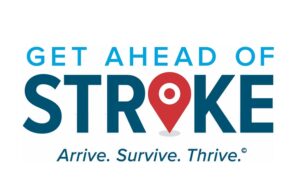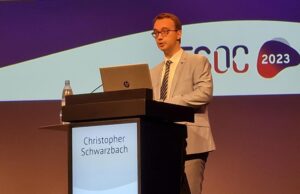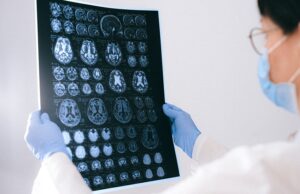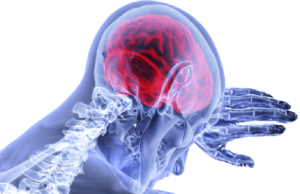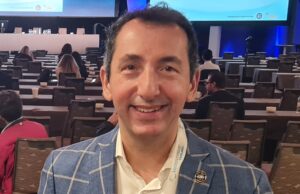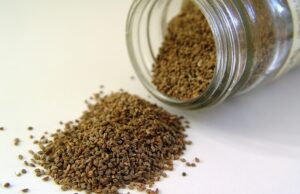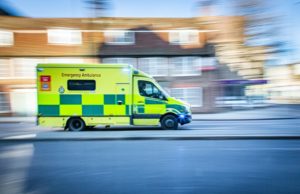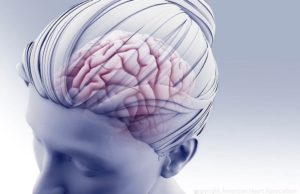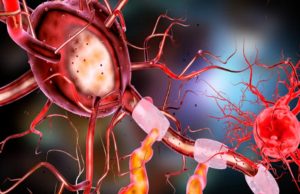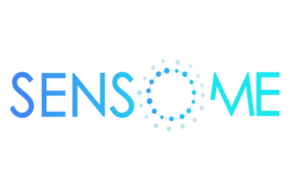Tag: stroke patients
No-reflow in clinical studies: Causes, rates and implications for patient outcomes
In a guest article for NeuroNews, Adnan Mujanovic (Bern, Switzerland) discusses a relatively unknown but potentially significant factor in stroke patients experiencing poor clinical...
Black people face strokes at higher rates and younger ages than...
In a recent study from the USA now published in the journal Neurology, Black people consistently had a higher rate of stroke than white...
Physicians highlight that “stroke strikes at any age” ahead of World...
Ahead of World Stroke Day 2023, on 29 October, physicians from the Get Ahead of Stroke campaign are highlighting the fact that, while prevalence...
Smart ‘brain-wave cap’ could help diagnose stroke patients accurately in ambulances
A specialised ‘brain-wave cap’, designed by researchers in The Netherlands, may be able to diagnose stroke patients while they are in an ambulance—thus allowing...
WSO predicts 50% more deaths unless “catastrophic” gaps in global stroke...
Between now and 2050—unless “urgent action is taken”—the number of people who die from stroke globally is estimated to increase by 50%, to 9.7...
ASA seeks to ‘empower’ Hispanic-Latino communities with promotion of RÁPIDO acronym
To help “close the gap between knowledge and action”, the American Stroke Association (ASA) is launching a culturally relevant Spanish-language campaign named ‘Juntos Contra...
J Mocco
As president of the Society of NeuroInterventional Surgery (SNIS), endovascular neurosurgeon J Mocco (Icahn School of Medicine at Mount Sinai, New York, USA) has...
Analysis shows substantial cost saving can be achieved with Philips’ DTAS...
Royal Philips has today announced the results of a health economics analysis published in the Journal of NeuroInterventional Surgery (JNIS) that show an “innovative approach” to the...
Structured ambulatory post-stroke care “requires further evaluation” following mixed trial results
While patients treated via a structured ambulatory post-stroke care programme (SANO) in a recent cluster-randomised study experienced better control of their cardiovascular risk factors...
Study finds worse post-stroke neurologic outcomes in Spanish-speaking Americans
New research has indicated that Mexican Americans have worse outcomes after a stroke than non-Hispanic white Americans.
A recent study, which looked at whether the...
Early diagnosis and treatment needed in “often underreported” post-stroke cognitive impairment
More than half of all stroke survivors may develop cognitive impairment within a year after their stroke, and one in three are at risk for developing dementia...
Trial underway involving neurointerventionist “retaliated against” for refusing concurrent on-call shifts
The opening statements and presentation of evidence are set for 10am PST today in a lawsuit involving claims that a medical doctor and his...
Get Ahead of Stroke campaign debuts new online resources for EMS...
With Brain Awareness Week (13–19 March) approaching, the Get Ahead of Stroke campaign has announced it is debuting new online resources for emergency medical...
Hotter weather during transportation associated with improved thrombectomy outcomes
A study intended to examine the impact of different weather conditions and modes of transport on mechanical thrombectomies in stroke patients has found a...
Celery seed derivative shows promise as neuroprotectant in acute ischaemic stroke
Ischaemic stroke patients treated with a clot-busting medication and/or mechanical thrombectomy who also received butylphthalide—a novel medication initially compounded from celery seed—experienced milder neurological...
New smartphone app may help to identify stroke symptoms as they...
A new smartphone application called FAST.AI (Neuronics Medical) may help people who are having a stroke—or their family and caregivers—to recognise common stroke symptoms in real...
Medtronic study finds post-stroke protocols “vary significantly” between community hospitals and...
Medtronic has announced the first results from its DiVERT clinical study, which showed that post-stroke workflow protocols and cardiac monitoring vary significantly across community...
SNIS 2022: COVID-19 may increase stroke risk in younger patients and...
Stroke patients with COVID-19 are facing worse outcomes, and are often younger and healthier, according to research presented recently at the Society of NeuroInterventional...
SNIS 2022: Research shows AI-based stroke diagnostics can expand access to...
A new study presented at the Society of NeuroInterventional Surgery’s (SNIS) 19th annual meeting (25–29 July, Toronto, Canada) shows that artificial intelligence (AI) technology...
SNIS 2022: Direct triage to Level 1 stroke centres reduces time...
Implementing severity-based field triage leads to faster treatment and less disability for stroke patients, according to late-breaking research presented recently at the Society of...
Alarming trends and alarmist myths: What is the link between COVID-19...
Over the course of the past two years, the accepted understanding of how COVID-19 spreads and functions has improved vastly, with preventative vaccines and...
Stroke in young people may be associated with increased likelihood of...
The risk of being diagnosed with a new cancer in the follow-up of patients with a first-ever stroke is particularly increased in patients younger...
UK stroke patients among thousands left waiting more than one hour...
In March 2022, more than 390,000 people who called 999 with emergencies including suspected stroke waited for an average of over one hour for...
Michael Chen
Michael Chen—a neurointerventionist and professor of Neurology, Neurosurgery and Radiology at Rush University Medical Center in Chicago, USA—speaks to NeuroNews to provide insight on...
Return to work and depressive symptoms in young stroke survivors
Matthias Volz (University of Kassel, Kassel, Germany), Simon Ladwig and Katja Werheid (both Humboldt-Universität zu Berlin, Berlin, Germany) discuss the burden of post-stroke depression...
New study finds e-Stroke software shortens treatment times and improves functional...
A new study presented at the 13th World Stroke Congress (WSC 2021; 28–29 October, virtual) found that the implementation of Brainomix's e-Stroke software resulted in...
World Stroke Day 2021: Survey finds 65% of hospitals worldwide do...
On the eve of World Stroke Day (29 October), the World Stroke Organization (WSO) has called for urgent improvements to the treatment of stroke...
MindMaze partners with Royal Buckinghamshire Hospital to bring novel stroke rehab...
MindMaze Healthcare has announced the first UK partnership for its novel MindPod platform to target cognitive and motor restoration in stroke patients. This new partnership...
Stroke study reveals optimal timing and intensity for arm and hand...
A phase II, randomised clinical trial has found that the optimal period for intensive rehabilitation of arm and hand use after a stroke should...
ESOC 2021: AI can calculate personalised risk of having another stroke
Artificial intelligence (AI) can be used to give stroke patients a personalised and more accurate assessment of their risk of suffering a recurrence, according...
ESOC 2021: Non-traditional risk factors for heart attack and stroke rising...
Work stress, sleep disorders, and fatigue—which are regarded as non-traditional risk factors for heart attack and stroke—are rising more steeply among women than men,...
Time is brain: Travelling stroke team enables faster treatment and better...
In a pilot programme in New York City, USA, a mobile interventional stroke team (MIST) travelled directly to patients to perform emergency stroke surgery...
Gender disparity in comprehensive stroke centre routing highlighted at SNIS
Women may be less likely than men to be sent to a comprehensive, or “Level 1”, stroke centre for emergent large vessel occlusion (ELVO)...
Using new-generation CB-CT imaging tests may shorten time to surgery for...
Using a different type of computed tomography (CT) scan may reduce the time to essential surgery for patients with the deadliest kind of strokes—emergent...
Black stroke patients undergo neuroendovascular surgery less often than white patients,...
Black patients with stroke are less likely than white patients to undergo a potentially lifesaving, minimally-invasive thrombectomy procedure to remove blood clots from arteries...
Repeated clot retrieval attempts linked to poorer functional outcome in acute...
Repeated clot retrieval attempts are associated with an increased rate of emboli to new territory (ENT) and greater infarct growth—resulting in poorer functional outcomes...
Stroke and heart condition patients want virtual healthcare to continue post...
After speaking with experts, reviewing current evidence, surveying people living with stroke or a heart condition, and funding a telephone poll of Canadians, the...
Sensome’s AI-powered stroke guidewire granted FDA Breakthrough Device designation
Sensome has announced its Clotild Smart Guidewire System—designed to improve the treatment of ischaemic stroke patients—has been granted a Breakthrough Device designation by the...



